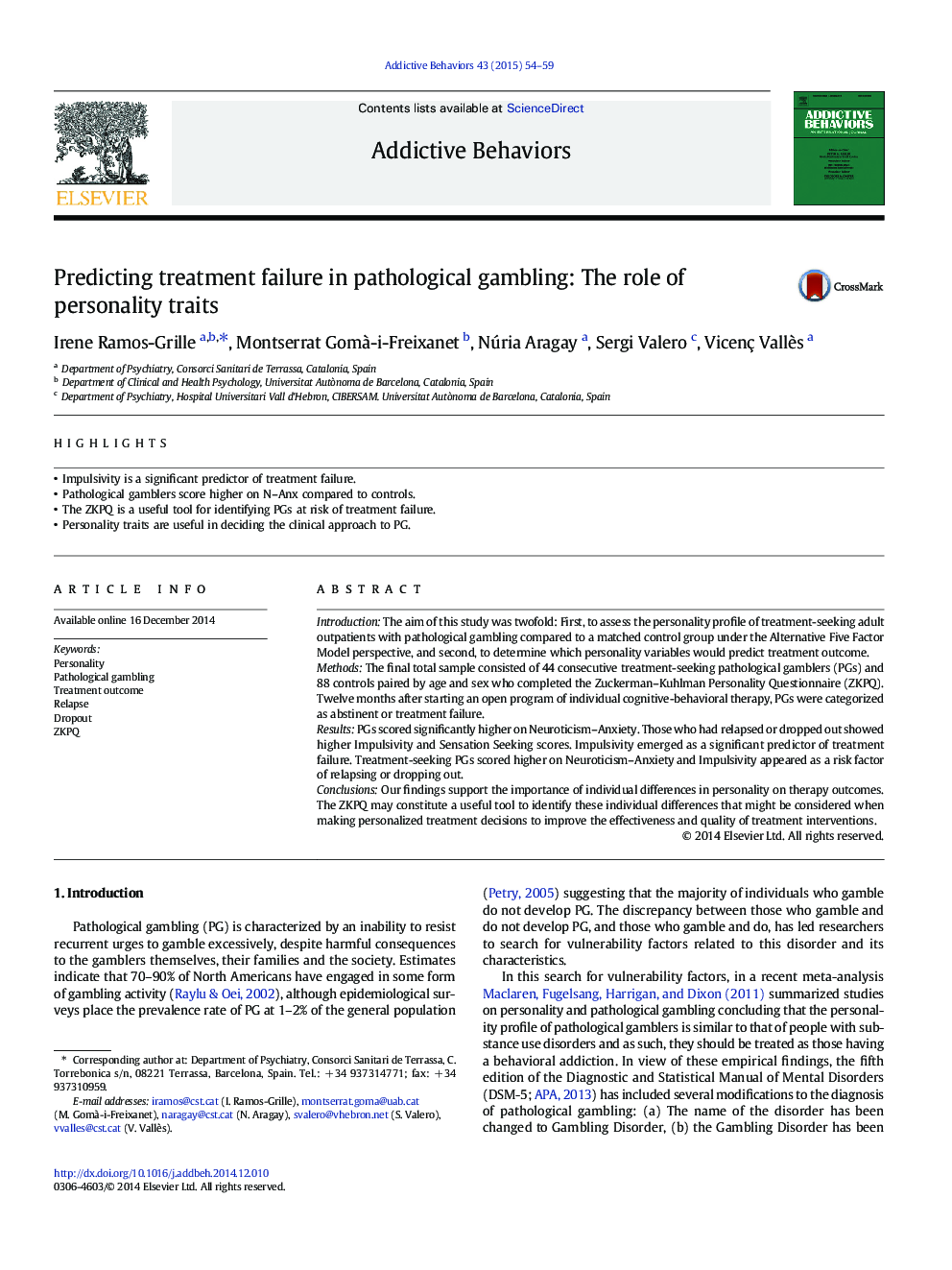| کد مقاله | کد نشریه | سال انتشار | مقاله انگلیسی | نسخه تمام متن |
|---|---|---|---|---|
| 898738 | 1472528 | 2015 | 6 صفحه PDF | دانلود رایگان |
• Impulsivity is a significant predictor of treatment failure.
• Pathological gamblers score higher on N–Anx compared to controls.
• The ZKPQ is a useful tool for identifying PGs at risk of treatment failure.
• Personality traits are useful in deciding the clinical approach to PG.
IntroductionThe aim of this study was twofold: First, to assess the personality profile of treatment-seeking adult outpatients with pathological gambling compared to a matched control group under the Alternative Five Factor Model perspective, and second, to determine which personality variables would predict treatment outcome.MethodsThe final total sample consisted of 44 consecutive treatment-seeking pathological gamblers (PGs) and 88 controls paired by age and sex who completed the Zuckerman–Kuhlman Personality Questionnaire (ZKPQ). Twelve months after starting an open program of individual cognitive-behavioral therapy, PGs were categorized as abstinent or treatment failure.ResultsPGs scored significantly higher on Neuroticism–Anxiety. Those who had relapsed or dropped out showed higher Impulsivity and Sensation Seeking scores. Impulsivity emerged as a significant predictor of treatment failure. Treatment-seeking PGs scored higher on Neuroticism–Anxiety and Impulsivity appeared as a risk factor of relapsing or dropping out.ConclusionsOur findings support the importance of individual differences in personality on therapy outcomes. The ZKPQ may constitute a useful tool to identify these individual differences that might be considered when making personalized treatment decisions to improve the effectiveness and quality of treatment interventions.
Journal: Addictive Behaviors - Volume 43, April 2015, Pages 54–59
